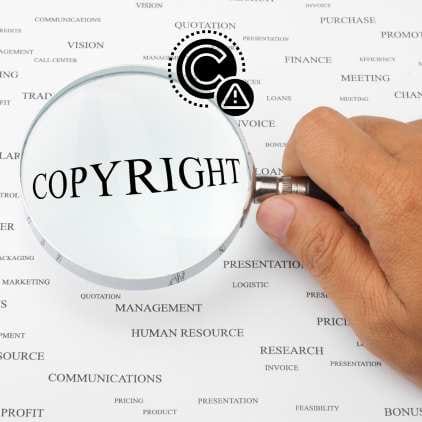
Vaccines are life-saving tools because they protect people from deadly diseases. Especially during global health emergencies like a pandemic, having quick access to vaccines becomes very important. Therefore, many experts believe we should instantly waive intellectual property rules for vaccine production to make vaccines available faster and to more people.




Top 5 Ways to Prevent Copyright Violations in Your Content
Feel free to get in touch with us, and our team will respond promptly to assist you with your needs.
To begin with, intellectual property (IP) rules include things like patents, trade secrets, and other protections. These rules give companies exclusive rights to make and sell their products for a certain period of time.
However, during a health emergency like a pandemic, these rules can create serious problems. Even if other companies know how to make the vaccine, IP rules may prevent them from doing so.
As a result, fewer vaccines are produced, and many countries struggle to get enough doses. Therefore, it is important to instantly waive intellectual property rules for vaccine production so that more people around the world can get the protection they need faster and more fairly.
To help solve this problem, in October 2020, India and South Africa suggested a special waiver to the World Trade Organization (WTO). Furthermore this idea was linked to the TRIPS Agreement, which controls global rules for intellectual property. Additionally their proposal was to instantly waive intellectual property rules for vaccine development and other treatments during the COVID-19 crisis.
In addition, the plan included sharing trade secrets such as the exact formulas and how the vaccines are made. Moreover this way, companies in many countries could start making vaccines more quickly and safely.
As a result, countries could begin vaccine production without fear of being taken to court. Most importantly, they wouldn’t have to wait for approval from the WTO or the World Health Organization (WHO), saving precious time and lives.
During a pandemic, even a delay of a few months in vaccine production can cost many lives. For instance, studies show that in low-income countries, more than 50% of COVID-19 deaths could have been avoided if vaccines were available earlier.
Moreover, when wealthy countries keep most of the vaccines for themselves, it causes what some call “vaccine apartheid.” This means that while some people are fully vaccinated, many others have no access at all.
In fact, the strict enforcement of intellectual property rules by the World Trade Organization (WTO) has limited how many vaccines poorer countries can produce. Therefore, to improve global health and save lives, it is important to instantly waive intellectual property rules for vaccine production so more doses can reach those in need quickly.
First, many developing countries more than 60 nations support the idea to instantly waive intellectual property rules for vaccine production.
Next, world leaders like WHO Director-General Tedros Adhanom Ghebreyesus strongly encourage approval of the waiver. He warns that low vaccination rates give the virus more chances to change and become more dangerous.
Also, important health groups such as Doctors Without Borders and the People’s Vaccine Alliance remind us that most vaccine research was paid for by public money sometimes up to 98%.
Therefore, if taxpayers helped fund this research, it makes sense to allow widespread vaccine production so everyone can benefit.
Some pharmaceutical leaders say that patents are not the main problem. Instead, they believe the real issues are the limited manufacturing capacity and shortages of raw materials. Moreover, complex vaccines, such as mRNA vaccines, need special factories that cannot be built quickly.
Others worry that if we instantly waive intellectual property rules for vaccine, companies may stop investing in new vaccines and medical research in the future.
However, during the COVID-19 pandemic, most research and development was paid for by governments not the pharmaceutical companies.
In fact, one financial expert said that not supporting this waiver might tell companies, “Don’t work on anything we really care about,” which would be harmful in the long run.
Even supporters agree that simply waiving intellectual property rules is not enough. It must also include technology transfer, training, and sharing raw materials. Only then can factories around the world truly make vaccines and help end the pandemic.
Although voluntary licenses are available, they often lead to long delays due to complex negotiations. In addition, they restrict which companies are allowed to make vaccines. In contrast, if we instantly waive intellectual property rules for vaccine production, many more qualified manufacturers around the world could begin producing vaccines much more quickly.
Some critics argue that low-income countries lack the proper infrastructure to store and deliver vaccines safely. Admittedly, this is true. However, if we instantly waive intellectual property rules for vaccine production, these countries could at least begin making their own vaccines. Later on, with the right investments and planning, their vaccine storage and distribution systems can be improved.
Furthermore, countries that already have enough vaccine doses should take action by sharing them with others. Additionally the pandemic has clearly shown that global health is deeply connected no one is truly safe until everyone is safe.
In addition, if large parts of the world stay unvaccinated, new virus variants can develop. This, in turn, makes existing vaccines less effective for everyone. For this reason, it is also essential to instantly waive intellectual property rules for vaccine production, so that vaccines can reach all people quickly and fairly.
First, countries especially wealthy ones must support a full and strong waiver. In addition this means no watered-down versions that limit how long or how much of the rules get waived.
Next, it’s important to include trade secrets in the waiver. Even if patents are lifted, manufacturers still need full recipes and proper training to make vaccines correctly.
Furthermore, we should help countries build labs and vaccine distribution systems. In addition this includes setting up cold storage and transportation to keep vaccines safe.
Additionally, the waiver can ease restrictions on raw materials that currently slow down vaccine production.
At the same time, governments must continue funding future research especially projects with public funding and global health importance.
Countries like India, Bangladesh, Brazil, Turkey, and Egypt could produce vaccines at a much larger scale.
Low- and middle-income countries would be able to vaccinate more people sooner.
Early vaccination helps stop new virus variants from emerging, keeping vaccines effective worldwide.
With fair global solutions in place, companies can build trust and work closely with governments to prepare for future health crises.
By working together and choosing to instantly waive intellectual property rules for vaccine, the world can take a big step toward ending the pandemic faster and more fairly.